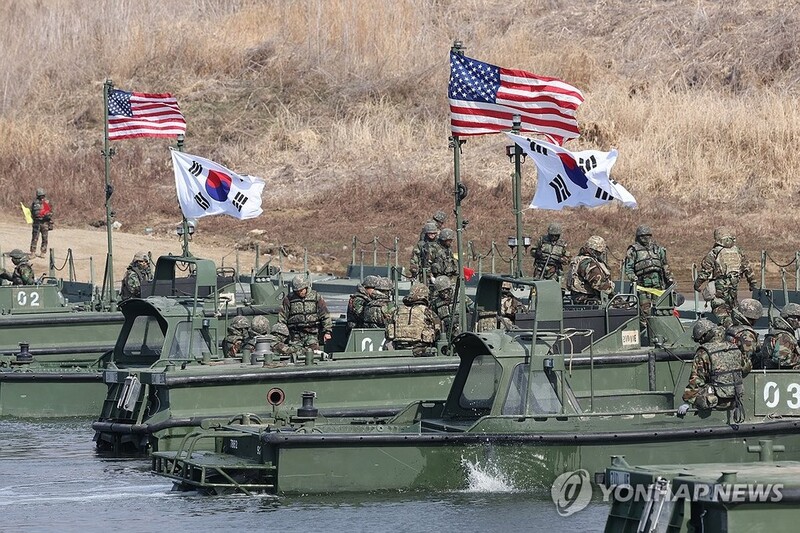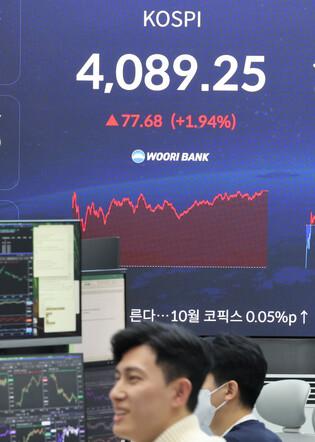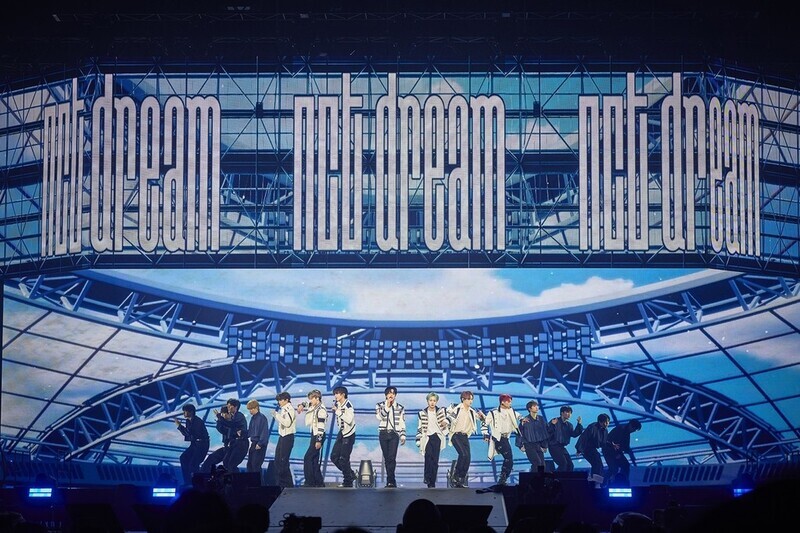 |
| ▲ This photo, taken on March 20, 2024, shows South Korean and U.S. troops engaging in a river-crossing exercise in Yeoncheon, 60 kilometers north of Seoul. (Yonhap) |
US official-NK threat
U.S. military official stresses need not to 'overreact' or 'underreact" to N.K. threats
By Song Sang-ho
WASHINGTON, May 9 (Yonhap) -- A senior U.S. military official has cautioned against "overreacting" or "underreacting" in the midst of tensions heightened by North Korea's persistent nuclear and missile threats and its tough rhetoric against South Korea and the United States.
The official, who requested anonymity, made the remarks in an interview with Yonhap News Agency on Wednesday, as he noted the need to prevent escalation of tensions on the Korean Peninsula in the absence of meaningful dialogue between the two Koreas and between the U.S. and the North.
Tensions have persisted in Korea as Pyongyang has been doubling down on its menacing weapons programs and exercises to employ them as seen in last month's drills simulating what the recalcitrant regime called a "nuclear counterattack."
"We just need to be cautious that we don't overreact or underreact, that we avoid miscalculation and maintain communication as much as possible," the official said in a phone interview.
Washington has apparently been seeking to forestall further escalation on the peninsula amid security uncertainties stemming from Russia's protracted war in Ukraine and the war between Israel and the Hamas militant group.
Asked if he sees the current security situation as worrisome, he is "no more concerned today" than before.
"I think unfortunately, North Korea continues to develop advanced weapons systems," he said. "I think we just need to continue to monitor that, and make sure that we conduct the appropriate training to build a readiness to respond if necessary."
Touching on the growing nexus among North Korea, Russia, China and Iran, the official underscored the need to have a clear understanding of its nature and keep monitoring it.
"What is going on between Russia and the DPRK right now ... that needs to be monitored and paid attention to as well as the relationship between China and the DPRK," he said. "Because the DPRK doesn't exist without the sponsorship of Russia and China."
DPRK stands for the North's official name, the Democratic People's Republic of Korea.
The official portrayed North Korean leader Kim Jong-un (KJU) as a rational actor -- a premise underpinning deterrence efforts.
"When we look at KJU, he's a rational actor. He will not do something that undermines his own regime," he said.
"So ensuring he knows that we are capable of defending ourselves, both the U.S. and South Korean homelands, and that he does not have the capability to overcome that ... That's what integrated deterrence is," he added.
"Integrated deterrence" refers to an approach that leverages U.S. national assets as well as regional allies and partners for optimal and efficient deterrence against potential adversaries.
Commenting on lingering questions over the North Korean regime's unpredictability and rationality, the official said, "unpredictable does not mean irrational."
"I think if we are surprised by something (Kim) does, it's a mistake on our imagination and understanding of it," he said.
The official underscored the U.S. military's readiness to deal with North Korean threats.
"Our readiness posture is designed to prevent and prepare in the event we need to prevail," he said. "Our effort is making sure that it doesn't happen. But in the event that something happens, I do believe we are in a position where we will be able to return to the armistice."
He was referring to the armistice that halted the fighting in the 1950-53 Korean War.
(END)
<저작권자(c) 연합뉴스, 무단 전재-재배포, AI 학습 및 활용 금지>
(C) Yonhap News Agency. All Rights Reserved


































